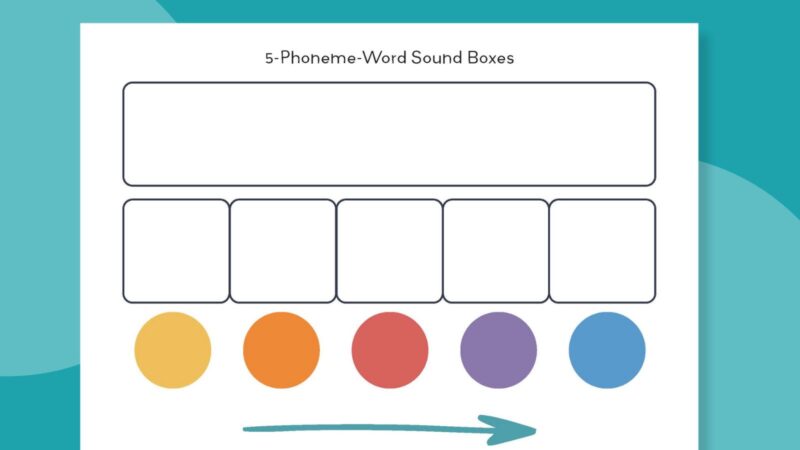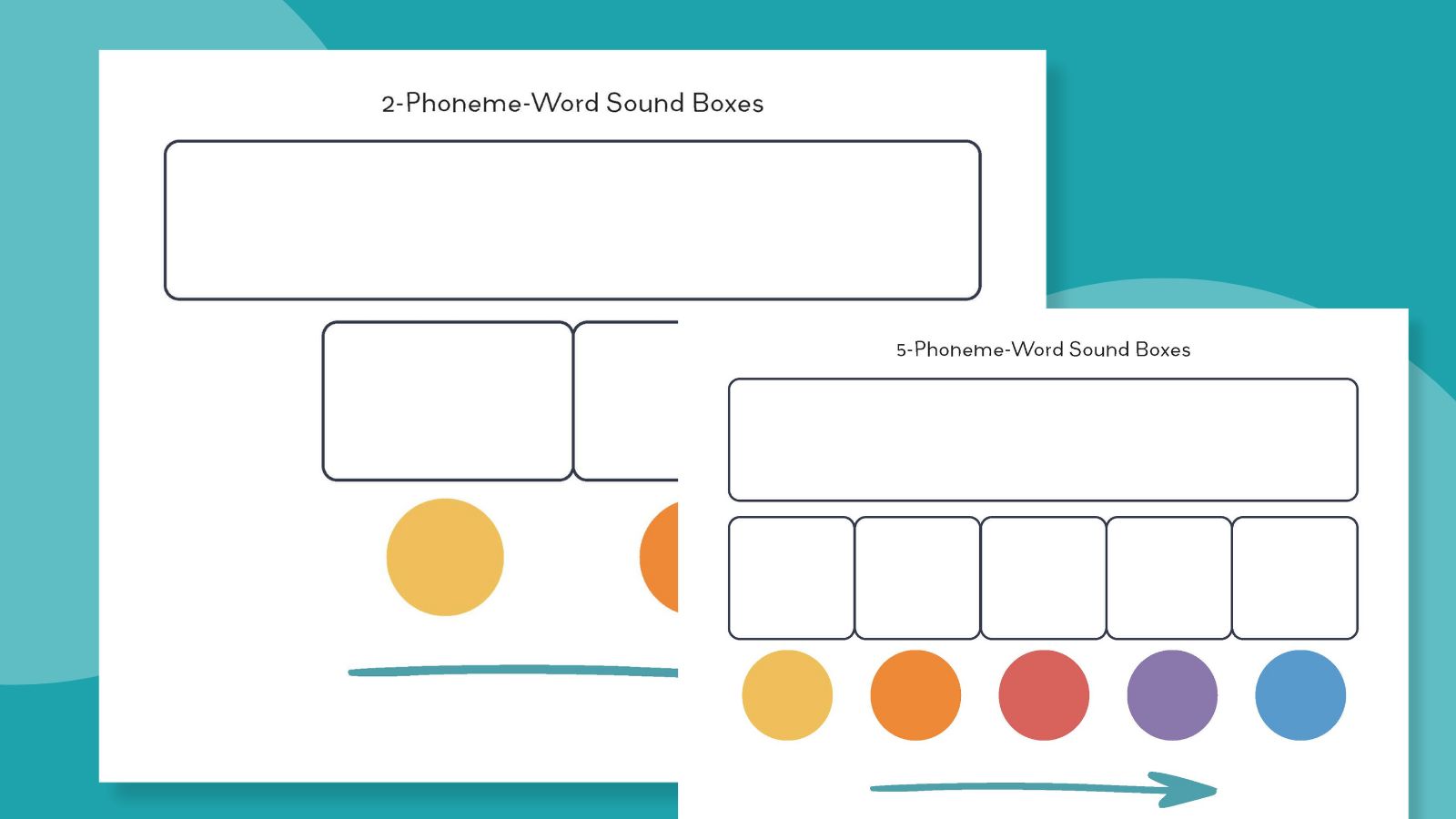Elkonin boxes are a terrific tool for helping young learners break words down into their constituent sounds. This is a key skill they’ll need as they begin to read and write. They’re ideal for group work, literacy centers, or individual practice at home. Grab our set of free printable Elkonin sound boxes, then learn how they work and how to use them.
What are Elkonin boxes?
D.B. Elkonin popularized this method in the 1960s, and the boxes have become a staple of early education classrooms in the decades since. Also known as “sound boxes” or “blend boxes,” they give kids a hands-on way to understand how sounds make up words.
In an Elkonin box, words are broken up not by letter, but by phoneme. A phoneme is a unit of sound, which is represented by one or more letters. For instance, the word “change” is made up of six letters. But not all of those letters are pronounced individually, so this word actually only has four phonemes: /ch/ /ā/ /n/ /j/. Learn more about phonemes and phonemic awareness here.
As students sound out words using Elkonin sound boxes, they physically slide a marker into each space in the box to represent each sound or phoneme. Many sound boxes include arrows to help students remember to read from left to right. They may also include color coding, like green at the beginning and red at the end (like a stoplight).
Why are Elkonin boxes helpful for emergent readers?

This literacy support tool provides so many benefits for young readers, emphasizing key skills like:
- Phonemic awareness: The understanding that words are made up of individual sounds that correspond to letters or letter combinations is vital for proficient reading.
- Segmentation: Dividing words into their individual sounds helps new readers break things down into manageable chunks.
- Digraphs and vowel teams: Sound blends like /ch/ and /ai/ use multiple letters to represent one sound, and Elkonin boxes help kids master this challenging concept.
- Visual and kinetic learning: Tracing arrows and moving markers add a physical element to the process, supporting different learning styles.
How To Use Elkonin Sound Boxes

Here’s how to use this literacy intervention tool, step-by-step.
1. Print the boxes and slide them into sheet protectors.
Download our free printable set, then slide each page into a sheet protector (or laminate it). This allows you to use them over and over with dry-erase markers.
2. Grab some markers or tokens.
Round up some markers to use with your boxes, and place them underneath each space in the box to start. Possible options: coins, math cubes, LEGO bricks, checkers, counter chips, toy cars (drive them into the boxes!), or small treats like gummy bears, M&Ms, grapes, etc.
3. Write the target word above the sound box.
Choose the right sound box page for the words you’re working on, based on the number of phonemes in each word. Have your student write the word above the sound box (this squeezes in some handwriting practice too!). They can also spell it out with number blocks or magnets.

4. Slide markers into spaces as you sound out the word.
As your student slowly sounds out the word, have them slide a marker into a space for each sound. Remember, you’re not doing individual letters, so you may use fewer spaces than the number of letters in a word. If the word is “shock,” it might sound like this: “shuh-ah-kuh.” In phonemes, that’s /sh/ /o/ /k/, so you only need to use three spaces in an Elkonin box.
5. Write phonemes for each sound in the word (optional).
If it’s helpful, have your student write the letters that make up each sound or blend in the boxes too. This can be especially useful when tackling tough letter combinations like /igh/, which has three letters but only makes one sound.
6. Pronounce the whole word smoothly, running a finger across from left to right.
Now, have your student read the whole word in one smooth action. As they do, encourage them to run their finger across from left to right. This helps emphasize the right direction to read words, plus it keeps them focused on the phonemes in the correct order. Repeat a few times, and congratulate them on their success!
Get Your Free Printable Elkonin Sound Boxes Bundle

Just fill out the form on this landing page to get your free bundle of printable Elkonin sound boxes. There are options for 2-phoneme sounds through 5-phoneme sounds.

